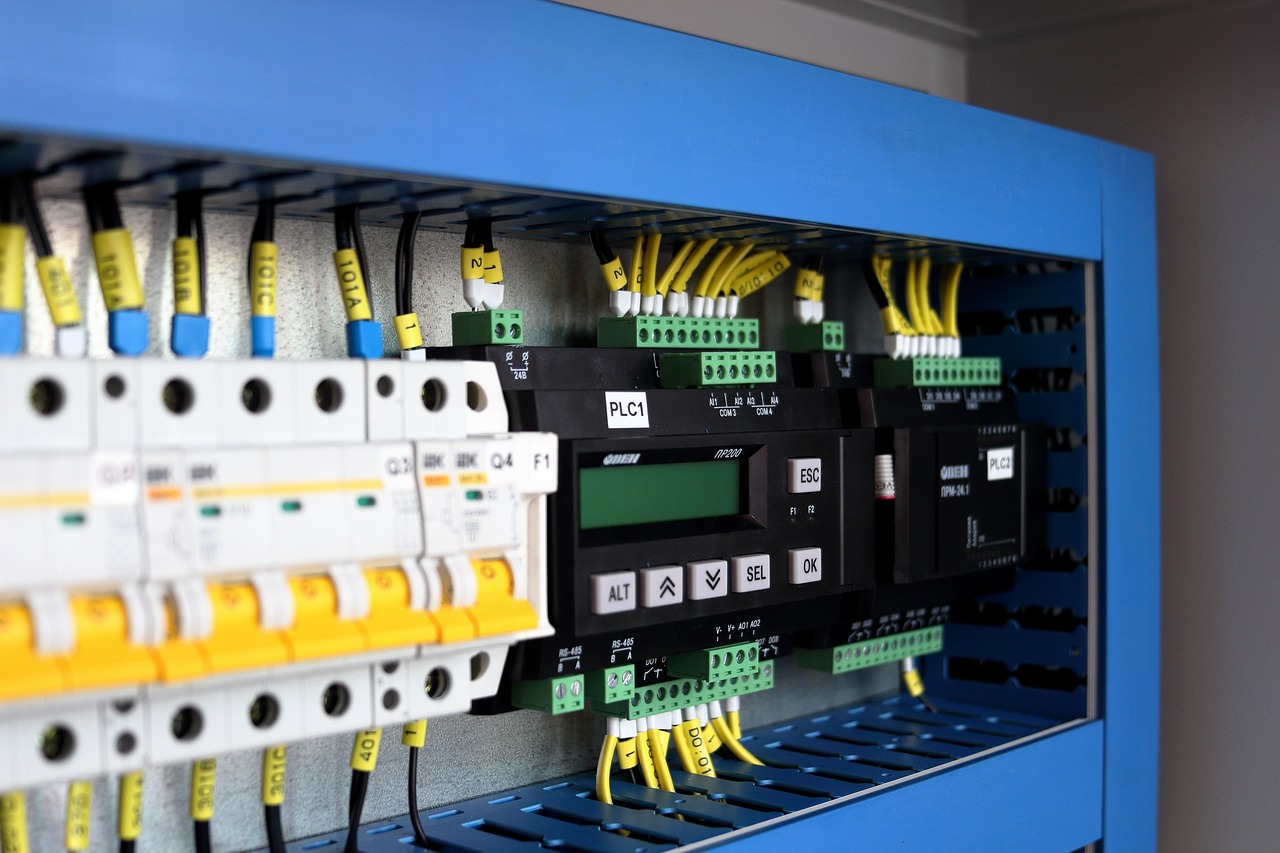Unlocking the Potential of PLC Programming: Innovative Applications
 In today’s dynamic industrial landscape, Programmable Logic Controllers (PLCs) have become indispensable tools for automation, process control, and optimization. As technology continues to evolve, PLC programming has expanded beyond traditional applications, unlocking new possibilities and innovative solutions across various industries. In this comprehensive guide, we will explore the diverse applications of PLC programming, highlighting its transformative impact and the role of PLC programming companies and system integrators in harnessing its potential.
In today’s dynamic industrial landscape, Programmable Logic Controllers (PLCs) have become indispensable tools for automation, process control, and optimization. As technology continues to evolve, PLC programming has expanded beyond traditional applications, unlocking new possibilities and innovative solutions across various industries. In this comprehensive guide, we will explore the diverse applications of PLC programming, highlighting its transformative impact and the role of PLC programming companies and system integrators in harnessing its potential.
Revolutionizing Industrial Automation
PLC programming lies at the heart of industrial automation, revolutionizing manufacturing processes, and production systems. From automotive assembly lines to food processing plants, PLCs serve as the backbone of automated systems, orchestrating complex sequences of operations with precision and efficiency. PLC programming companies specialize in developing customized automation solutions tailored to the specific needs of industries, optimizing production throughput, minimizing downtime, and enhancing overall productivity. By leveraging advanced programming techniques and cutting-edge technologies, PLC system integrators create seamless integration between PLCs, sensors, actuators, and other industrial components, driving innovation and efficiency in industrial automation.
Enhancing Process Control and Optimization
In addition to automation, PLC programming plays a crucial role in enhancing process control and optimization across diverse industrial sectors. PLCs are capable of monitoring and regulating various parameters such as temperature, pressure, flow rates, and levels within manufacturing processes, ensuring optimal conditions and product quality. PLC programming companies develop sophisticated control algorithms and strategies to optimize process parameters, minimize variations, and maximize efficiency. By implementing advanced control techniques such as proportional-integral-derivative (PID) control, fuzzy logic, and model predictive control (MPC), PLC system integrators enable precise control and real-time optimization of complex processes, leading to improved product consistency, reduced waste, and enhanced operational performance.
Driving Innovation in Energy Management
PLC programming plays a pivotal role in driving innovation in energy management and conservation, enabling industries to optimize energy usage, reduce costs, and minimize environmental impact. PLCs are instrumental in monitoring and controlling energy-intensive processes and equipment, implementing energy-efficient strategies, and optimizing resource utilization. PLC programming companies develop customized solutions for energy management, integrating PLC systems with sensors, meters, and energy monitoring devices to track energy consumption patterns, identify inefficiencies, and implement corrective actions. By leveraging data analytics, machine learning, and predictive algorithms, PLC system integrators enable industries to forecast energy demand, optimize energy usage, and implement sustainable practices, contributing to environmental stewardship and cost savings.
Facilitating Smart Manufacturing Initiatives
As industries embrace the concept of smart manufacturing, PLC programming emerges as a critical enabler of digital transformation and Industry 4.0 initiatives. PLCs serve as the backbone of interconnected, intelligent manufacturing systems, enabling seamless communication, data exchange, and decision-making across the production lifecycle. PLC programming companies specialize in developing smart manufacturing solutions, leveraging PLCs, industrial Internet of Things (IIoT) devices, and cloud-based platforms to create interconnected ecosystems that optimize efficiency, flexibility, and responsiveness. By integrating PLC systems with data analytics, artificial intelligence, and predictive maintenance technologies, PLC system integrators empower industries to achieve real-time visibility, agility, and innovation, driving competitive advantage in today’s fast-paced market landscape.
Conclusion
In conclusion, PLC programming continues to unlock new possibilities and innovative applications across diverse industries, revolutionizing industrial automation, enhancing process control and optimization, driving innovation in energy management, and facilitating smart manufacturing initiatives. As industries embrace digital transformation and seek to leverage automation technologies for competitive advantage, the role of PLC programming companies and system integrators becomes increasingly crucial. By harnessing the expertise of PLC programming professionals, industries can unleash the full potential of PLCs, optimize operational performance, and drive sustainable growth in the evolving landscape of industrial automation and beyond.









